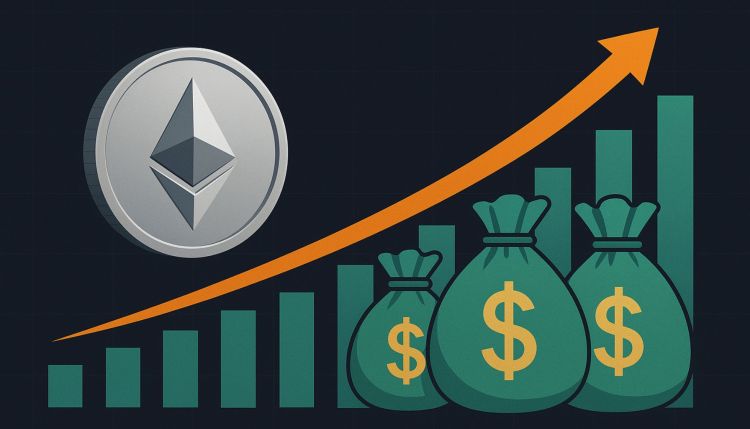What Is FINRA?
Note: This post may contain affiliate links, and we may earn a commission (with No additional cost for you) if you make a purchase via our link. See our disclosure for more info. The crypto world is constantly changing. This content is for informational purposes only and not financial, legal, or professional advice So, please verify the info on the cryptocurrency provider’s websites.
FINRA, short for the Financial Industry Regulatory Authority, is the self-appointed watchdog of the U.S. securities market. Established in 2007, it keeps an eye on about 3,394 brokerage firms to guarantee they play fairly. With its own set of rules and thousands of daily monitored transactions, it's a tough enforcer. Disciplinary actions? Yup, they're not afraid to hand out fines and restitution like candy. Curious how it all works? There's more to uncover.

FINRA, short for the Financial Industry Regulatory Authority, is the watchdog of the U.S. securities world. Formed in 2007 by merging the National Association of Securities Dealers (NASD) and NYSE Regulation, this private, non-profit organization oversees a staggering number of brokerage firms—around 3,394 to be exact.
FINRA, the U.S. securities watchdog, oversees 3,394 brokerage firms to ensure market integrity and protect investors.
And let's not forget the 149,887 branch offices and over 612,000 registered representatives. That's a lot of oversight. Based in Washington, D.C., and New York City, FINRA operates under the watchful eye of the SEC but is funded by fees from its members.
The core mission? Protect investors. Sounds noble, right? FINRA aims to guarantee that securities markets are fair, honest, and transparent. They monitor billions of daily market events for any funny business. If you're a broker, better study up for those licensing exams like Series 7 or Series 3. They even administer ongoing education to keep those licenses current. FINRA licensing involves passing the FINRA Entrance Examination, which is a crucial step for aspiring brokers.
Now, let's talk enforcement. In 2023, FINRA initiated 610 disciplinary actions. Yes, 610. That included hefty fines totaling around $88.4 million and restitution of $7.5 million. They have the power to shut down firms that don't play by the rules—no questions asked. As of October 2023, FINRA oversees 3,394 brokerage firms, ensuring compliance with industry regulations.
And for investors looking to vet their brokers, there's BrokerCheck, a handy tool to check credentials and disciplinary history. It's like Yelp, but for financial professionals.
FINRA's governance is a mixed bag, with a Board of Governors consisting of both industry and public representatives. They aren't funded by taxpayer dollars, which is an invigorating twist. Instead, they rely on member fees. As cryptocurrencies gain prominence, FINRA is increasingly focused on implementing AML processes to address the unique compliance challenges presented by digital assets.
Frequently Asked Questions
How Does FINRA Regulate Brokerage Firms?
Brokerage firms face a hefty regulatory gauntlet. They must apply for membership and disclose a mountain of background info. Yep, every little detail.
FINRA keeps tabs on their finances, ensuring they don't go belly-up and leave investors high and dry. Regular exams? Check. Disciplinary actions? Absolutely.
They're serious about compliance, and if firms step out of line, the consequences can be swift and harsh. It's a tough world, and FINRA insists on keeping it that way.
What Are the Penalties for Violating FINRA Rules?
Violating FINRA rules? Brace for impact.
Fines can hit $155,000 for unregistered securities. Yes, that's a hefty price tag.
Customer protection slip-ups? Expect a fine up to $77,000.
And don't even think about ignoring those fines—automatic suspension or expulsion is on the table.
Supervisors get the axe too if they drop the ball.
It's a compliance jungle out there, and the penalties are fierce. Better watch your step!
How Can I File a Complaint With FINRA?
Filing a complaint with FINRA is straightforward. Got a beef with a broker? Great. You can submit your complaint online, by phone, or even snail mail.
Just make sure it involves some serious securities law violations, like fraud or bad recommendations. Gather your proof—account statements, emails, whatever.
Be clear and factual. They'll review it and may investigate. Just be prepared; it could take time.
Good luck steering through the world of finance!
Does FINRA Provide Investor Education Resources?
Absolutely, FINRA has a treasure trove of investor education resources.
Think free PDFs on everything from job loss to crypto scams. There's even a quiz to test your investing smarts.
And hey, they've got multilingual options too—because why not?
They're also all about helping folks who might be in over their heads financially.
What Is the Process for Becoming a FINRA Member?
Becoming a FINRA member? It's no walk in the park.
First, you reserve your firm name. Then, designate a Super Account Administrator—because who doesn't want more responsibilities?
Next, pre-fund your Flex-Funding Account. Don't forget to file a bunch of forms like Form BD and Form NMA.
Oh, and you need at least two qualified principals.
The interview process? Brace yourself. Just another day in regulatory paradise.
Good luck!










